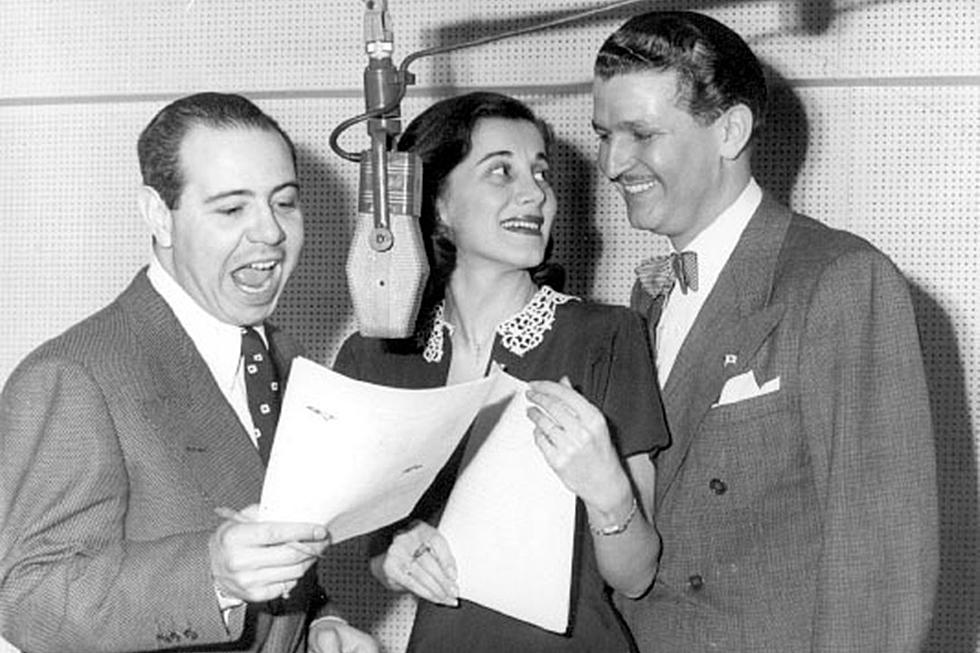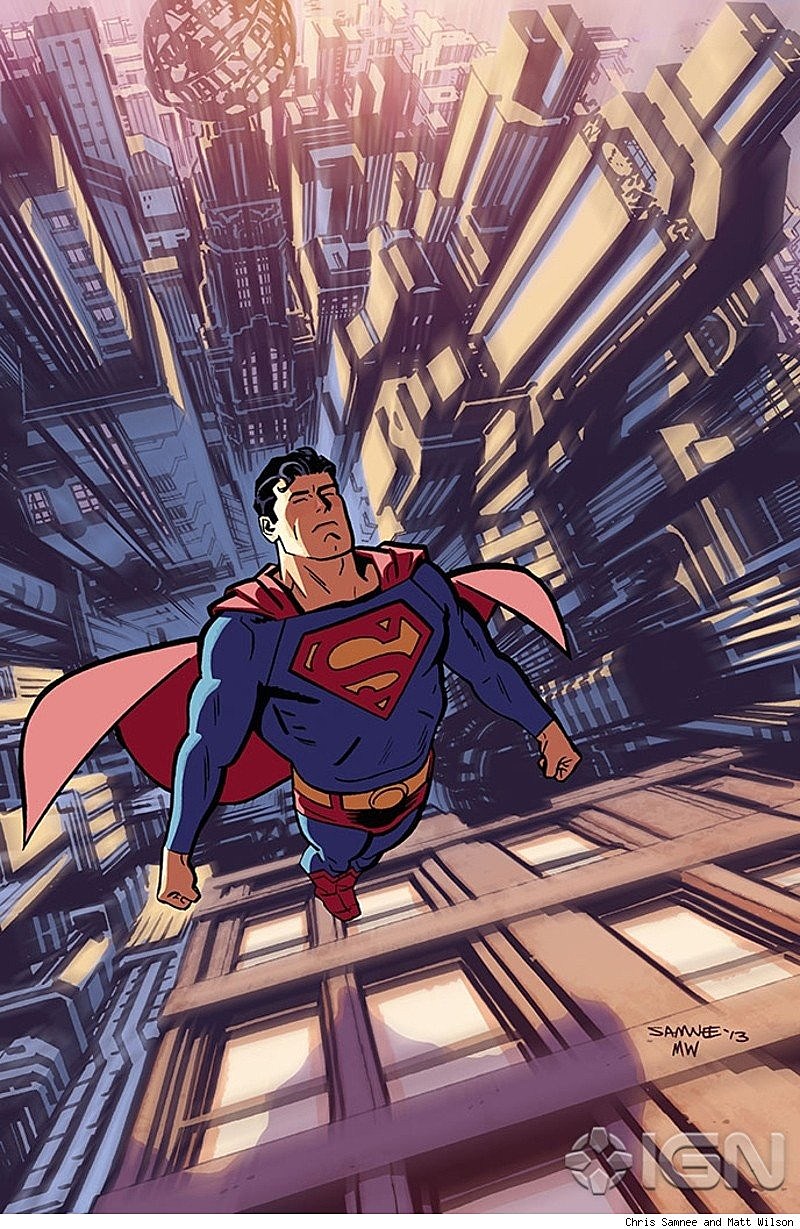![The Big Issue: Comic Book Retailers On Orson Scott Card And Superman, Part 1 [Interview]](http://townsquare.media/site/622/files/2013/02/richard-neal.jpg?w=980&q=75)
The Big Issue: Comic Book Retailers On Orson Scott Card And Superman, Part 1 [Interview]

When DC Comics issued its statement of no action in response to the outcry over its hiring of anti-gay-marriage crusader Orson Scott Card to write a story in its new Superman anthology, Adventures of Superman, the publisher essentially delegated the moral decision, not only to fans, but to retailers. Some of those retailers will sell the book normally. A few will sell the book, but donate their profits. Others, an ever-growing group, are choosing to keep the comic off their shelves altogether.
The choices retailers are making and the debate surrounding those choices seem to indicate that the intersection of comic retailers, fans, creators and publishers isn't what it used to be. It's more political, more vibrant and perhaps more acrimonious than it's ever been. In this first of a series of interviews with retailers here at ComicsAlliance, we chatted with one of the first and certainly one of the most outspoken comic shop owners opting not to sell Orson Scott Card's Superman work, Richard Neal of Zeus Comics in Dallas, Texas.ComicsAlliance: You've made your reasons for why you opted not to sell the book quite clear in other interviews, so there's no need to dig into that again. But I'm sure you considered that making your choice as publicly as you are puts something of a target on your back. Does that worry you at all?
Richard Neal: As an out gay man, I was already a target. Orson Scott Card spent nearly two decades attacking [me] in essays and posts about the evils of homosexuality. Card sits on the board of the National Organization of Marriage, a group determined to deny equality. Card would take away my relationship with my husband Chris. He's equated homosexuality with rape, pedophilia and that we are born of abuse. While I am lucky to be surrounded by a strong, supportive group of family and friends, not everyone is so fortunate. You only have to look to the rate of LGBT teen bullying, suicide and projects like "It Gets Better" to understand that Card's hate speech and advocacy directly impact the actions and beliefs of others.
CA: There will be other comic shops in the Dallas area that sell this comic, I think we can safely say. There may be others that choose not to. I wonder if this case, what retailers do in regard to this comic, becomes something of a tipping point. Surely some customers will know some stores as the ones that sold the OSC comic and others as the one that didn't, right? Won't that influence readers' decisions when it comes to where they shop?
RN: Let me pull back for a moment because you're speaking directly to choice, and I've seen the word "censor" and the phrase "freedom of speech" bandied about in regards to Orson Scott Card and his relationship to DC Comics and Superman. Card can say, write, blog, advocate whatever he wants. That does not mean that speech comes consequence free. Free speech and censorship relate to a government and its citizens. It does not directly apply to businesses and their relationships. Your employer decides your dress code, your hours, your work ethic and in particular the things you can and can not say to your peers or the business' customers. Businesses decide whether or not to hire or fire folks based on things discovered on their Facebook page, Twitter feed, even their appearance.
Now, Card has said some venomous things about the LGBT community and he advocates such through his relationship with NOM. In the same way Nike can drop Lance Armstrong because of his potential to hurt their brand, DC can drop Card because his hate speech towards a group is damaging to DC Comics and Superman. Card is contracted to write a Superman story. DC is under no obligation to publish or print that story in part or in whole. DC will edit that story, ask for rewrites and often dictate the content. For example, DC would not let Card's Superman drop the F-Bomb. Is it censorship of Card's story? It isn't. Its not Card's story. Its DC's story. They hired him and they can decide what to publish. Is it censorship if Zeus Comics decides not to carry the comic? It isn't. Each month, when ordering products through Diamond, I am making a decision whether or not to carry a comic based on values, quality of work, and its ability to sell. That's not censorship, that's capitalism.
Also, in print publishing, the comic shop is DC's customer. It's completely within our right to ask DC to remove Card and/or provide us with a product we can sell. If a writer's personal opinions are so contrary to my audience's values, their work won't sell. The coverage this last week about Card's near two decades of outspoken anti-gay bigotry and anti-gay activism have made Orson Scott Card toxic to Zeus' customers. In the end, it's really Card's outspoken animus for gay people that made the decision.
CA: Protests over Chick-fil-A COO Dan Cathy's anti-gay-marriage comments led to a concerted, organized backlash. Groups organized days to go out of their way to eat at Chick-fil-A. One might argue it mobilized people who wouldn't have otherwise supported Chick-fil-A to action. Isn't there a chance of that here? Couldn't other retailers suddenly take, say, Batwoman off their shelves?
RN: A counter protest is a lot more energy than I think comics shops have in them. We're still small businesses, and many of us put in 60-hour work weeks or more. A counter protest might also alienate a shop's audience. I went forward with my decision knowing my audience stood with me. We could speculate that all this attention might drive sales up on OSC's Superman issue. For DC, however, the risk is that publishing this work and alienating an audience could reach beyond this single comic. It could impact their brand negatively.
CA: Is simply making the statement you're making more important than who you influence or how it influences them, one way or another?
RN: When it's time to stand up, you must. What I've grown weary of is watching equality for the LGBT community debated on blog after blog. If this were any other minority, it wouldn't even be a conversation. Let Card sit on his board and say his nasty things about us. But if he succeeds, who's next? In the end, my only hope is that all this publicity on OSC's hatred leads to a more informed consumer. As consumers, we make decisions all the time. Whether it's buying organic milk, supporting a local brewery or purchasing from corporations that support left or right causes. I don't have to buy his work and neither do you.
CA: Some people are arguing that it's hypocritical to boycott this comic if you sold Card's previous work for Marvel. I don't necessarily buy that argument, but I do think the fact that Card's work for Marvel seven or eight years ago slid by without uproar is worth examining. Obviously, there are lots of factors at play: Card wasn't on the National Organization for Marriage board yet, Twitter didn't even exist, same-sex marriage was only legal in Massachusetts. It also seems that some power dynamics have changed. Would you agree that the environment just wasn't prepared for what's happening now back then?
RN: At what point does an issue become large enough that you can no longer be ignorant? At what point does an "opinion" become a two decade long diatribe and hate advocacy? In 2004, Card published the essay, "Homosexual 'Marriage' and Civilization." In 2005, Marvel published Card's first Ultimate Iron Man series. The series did not sell well at Zeus due to negative publicity surrounding Card's views on the LGBT community. In 2007, Marvel published the second Card Ultimate Iron Man series. Card became a serious topic of discussion within the Zeus audience as they become informed consumers about his hate speech. Sales were low. This continued into his Ender's [Game] adaptations.
In 2008, California approved Proposition 8, thanks to large efforts by National Organization of Marriage. The next year, Card took a position on the board of the National Organization of Marriage. In 2011, Card released the novella Hamlet's Father. Then this year, DC released the solicits for his upcoming Adventures of Superman story. By this point, media and social media have picked up on homophobic Card being on Superman and I learn further about his continued attacks on the LGBT community, including his NOM position, for the first time.
We've reached a flashpoint here with Orson Scott Card. It's important to note that thanks to FB, Twitter and social media in general that we can no longer escape a person's or corporation's communication. This idea that writers or artists can get a pass on their fiction for their positive public or negative public speech is bulls**t. Frank Miller's Occupy blog meltdown, Tony Harris' Facebook cosplay rant and Gail Simone's continual vocal support of the LGBT community on Twitter have positively and negatively influenced sales on their respective works. I'm certain I've said things on those media that have lost Zeus customers, as I'm confident I've said things that have gained Zeus customers, even when those words had zero to do with selling comics. This all goes back to the informed consumer making choices on what to buy and what to support. Modern social media only puts extra scrutiny on everyone's words. And words have consequences from employment to sales.

CA: This seems like the culmination of a shift in how readers, publishers, creators and retailers all relate to each other now, too. It's an evolution that's been happening for a while. Twitter, particularly, has given everyone a soapbox. This isn't just about putting pressure on DC to stop hiring people who actively campaign against marriage equality. Retailers have a decision now, to carry this book, not carry it, or find some middle ground. Then they have to decide how public to be with that decision. I don't remember a comic that's come with that kind of decision attached to it. Is this a one-time thing, or is this the new normal?
RN: The new norm is a constant, global chat conversation. My decision on this was not announced on the Zeus site, not in a press release, not on the Zeus Facebook page. It was announced on my personal Facebook page where I assumed I was speaking to close friends and customers. However, the issue of equality speaks loudly whether it's a consumer to a company or a citizen to their government, comics included.
CA: It just seems like we live in a different world now. The comics shop where I bought all my comics as a kid could have been run by segregationists for all I knew (I'm very sure it was not, but for the sake of argument). It's not that I didn't care what they believed about very important social issues. I just didn't particularly mix that with my Wednesday visits. Now these issues have reached into everything, including the food we eat and the comics we read. Is that a good thing?
RN: Absolutely. We are creating a place that is welcoming to all. Sometimes the shop feels like community center, or a bar, or a counselor's office. It's one of the last places you can go to interact one-on-one and talk about the day. It's the constant dialogue that makes it fun.
CA: Let's end on a positive note. What comics are you really excited to be selling this May? (Adventures of Superman #1's release date is May 29.)
RN: I'm not sure I can pick one or even a few. I'm loving the new strength behind the Image brand with so many solid ongoing series. And huge kudos to Boom and IDW, alongside APE and Archie, for producing kids' comics again, like My Little Pony and Adventure Time. It's wonderful to have comics that kids and their parents can share in together.
More From ComicsAlliance




![Jerry Ordway & Steve Rude’s ‘Adventures of Superman’ Is Like ‘A Lost Fleischer Cartoon’ [Interview]](http://townsquare.media/site/622/files/2014/04/Untitled-132.jpg?w=980&q=75)

![Superman Traverses Time and Space in ‘Strange Visitor’ Conclusion [Preview]](http://townsquare.media/site/622/files/2014/03/Untitled-150.jpg?w=980&q=75)
![Joe Keatinge On ‘Adventures Of Superman': ‘When Am I Ever Going To Have This Chance Again?’ [Interview]](http://townsquare.media/site/622/files/2014/03/JK01.jpg?w=980&q=75)


